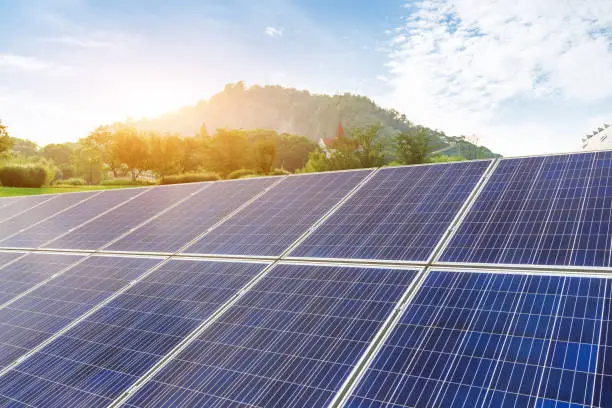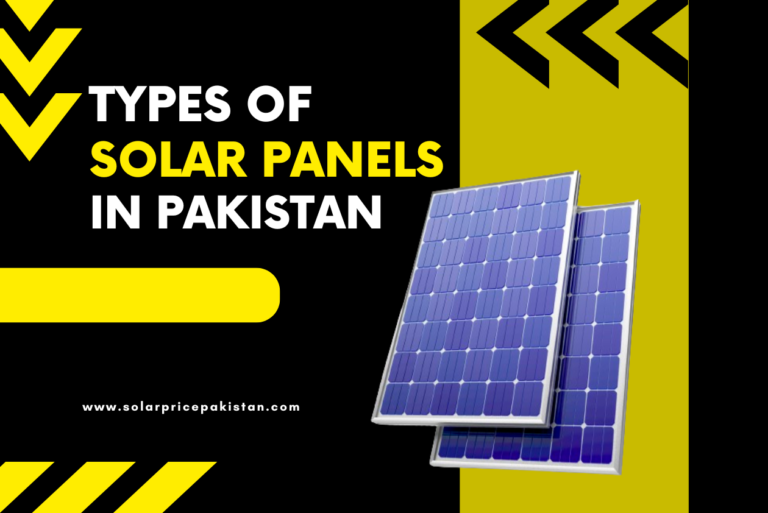Cost of Solar Electricity in Pakistan Latest 2025
In recent years, Pakistan has been progressively embracing renewable energy resources to meet its increasingly energy demands. Due to utilizing renewable energy carbon dioxide is also reducing from the environment. Solar energy becomes a popular solution because of its abundant availability and small impact on environment.
Pakistan is a country where sunlight is available throughout the whole year, solar energy presents an attractive opportunity to meet the country’s increasing energy demands. However, knowing the Cost of Solar Electricity dynamics is crucial for people.
Factors Influencing the Solar Cost
Solar Panels Price
Solar Panels are the major component of solar system. However, the cost of solar panel is the major component of the overall cost. The Price of solar panels depends on various factors such as brand, type (thin-film, monocrystalline, polycrystalline) and efficiency.
Installation Cost
Installation cost related to labor charges, solar expert charges, wires and other related necessary components. Solar installation cost depends on the complexity of project.
Solar Inverter Expenses
Inverter is also important component that convert the solar power to the electric power. Solar Inverter cost depends on the factors such as brand, efficiency.
Solar Batteries Expenditures
Solar Batteries are important to store the excess power generated by panels. Solar panels increase the overall cost of solar cost. Solar batteries cost depends on brands and capacity.



Government Incentives and Subsidies
Government incentives and subsidies plays an important role to reducing the cost of solar system installation. Government policies also provide some schemes to install the solar system easily like solar lease, power purchase agreement (PPA), government grants and community solar programs.
Maintenance and Lifespan
Solar system requires low cost for maintenance, which helps to reduce long-term operational expenses. Additionally, Solar panels have a long lifespan around 25 to 30 years.
Analyzing Solar Energy Cost
To better understand the cost dynamics, let’s examine the comparative study of solar electricity cost for businesses and residential installation in different cities of Pakistan. This table show the estimated cost kilo-watt per hour(kWh) along with payback period.
| Cities | Residential Solar Electricity Cost (PKR/kWh) | Business Solar Electricity Cost (PKR/kWh) |
|---|---|---|
| Lahore | 6.60 | 6.30 |
| Karachi | 6.80 | 6.50 |
| Islamabad | 6.20 | 6.10 |
| Peshawar | 7.00 | 6.70 |
Comparing Solar Electricity cost with Conventional Sources
Installing the solar system may seem expensive, but it’s crucial to think about the lifetime savings and benefits. There are several advantages to use solar power over conventional sources:
Cost Stability
Over the system lifespan, solar energy offers the consistent and stable electricity. May be the upfront cost is high but it’s important to think about lifetime benefits.
Environmental Benefits
Solar system generates clean and clear energy which emits no greenhouse gases and also reduce the carbon dioxide from the environment.
Energy Independence
Solar system enable user to generate their own electricity with the help of solar panels. Solar system reduces the dependency on the grid and provide a reliable energy.
People and businesses can evaluate carefully decisions about solar panel installation cost. Solar panels prices, installation cost, government incentives and geographical location are factors that are crucial to keep in mind to take right decision. Additionally, the advancement of technology and government policies making more attractive option for people.
Conclusion
In conclusion, for a bright future in Pakistan it’s crucial to understand the cost of solar electricity. Solar electricity is crucial towards more sustainable energy future, clean environment and long term benefits for individuals, household and business. Using Solar energy saves money and leave a greener cleaner earth for future generations with the right knowledge and resources.






